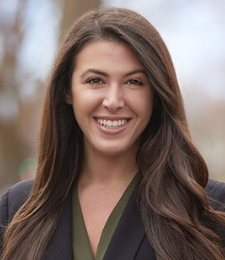I’m thrilled to announce that Bedard Law Group is the new sponsor for the Compliance Digest. Bedard Law Group, P.C. – Compliance Support – Defense Litigation – Nationwide Complaint Management – Turnkey Speech Analytics. And Our New BLG360 Program – Your Low Monthly Retainer Compliance Solution. Visit www.bedardlawgroup.com, email John H. Bedard, Jr., or call (678) 253-1871.

Every week, AccountsRecovery.net brings you the most important news in the industry. But, with compliance-related articles, context is king. That’s why the brightest and most knowledgable compliance experts are sought to offer their perspectives and insights into the most important news of the day. Read on to hear what the experts have to say this week.
Judge Cites ‘Limited Success’ in FDCPA Case in Reducing Plaintiff’s Attorney’s Fees by 50%
A District Court judge in Wisconsin has lowered the attorney’s fees awarded to counsel representing a plaintiff in a Fair Debt Collection Practices Act case by 50%, ruling that their “limited success” in the case merited such a discount. More details here.

WHAT THIS MEANS, FROM LORAINE LYONS OF MALONE FROST MARTIN: In considering whether there should be an adjustment to the lodestar, the court focused on the limited success in this straightforward case involving an allegedly misleading letter and doubted if plaintiff even had a claim.
The court questioned whether Article III standing existed as plaintiff suffered no actual harm, economic or financial, and remarked the $1,001 defendant agreed to pay plaintiff was “pure windfall.” Also, the court commented if defendant had persisted in its defense, based on recent Seventh Circuit decisions, (Delta Outsource and Degroot) it is likely no violation even occurred.
A 50% reduction to the lodestar is a nice win. The takeaways are when defending non-complex letter cases, challenge Article III standing where only statutory damages are alleged and if you are in the Seventh Circuit, look at the Delta Outsource and Degroot decisions for possible defenses.
THE COMPLIANCE DIGEST IS SPONSORED BY:

Debt Buyer to Offer $2.7M of Relief in Settlement With Maryland AG
The Attorney General of Maryland has announced a settlement between his office and a third-party debt buyer that will result in $2.7 million of debt relief for individuals who attended a for-profit college that lost its accreditation, closed its doors, and had its assets sold by a court-appointed receiver. More details here.

WHAT THIS MEANS, FROM AYLIX JENSEN OF MOSS & BARNETT: In November 2020, the State of Maryland announced a $2,622,877 debt relief agreement for approximately 1,200 former Maryland students of Brightwood College. The announcement followed a settlement between Maryland’s Consumer Protection Division and a third-party debt buyer. The effect of the settlement is the immediate cancellation of the underlying student loans.
Generally, discharge of debt is a taxable event and treated as income to the borrower. However, in early 2020, the IRS and the Department of the Treasury established a safe harbor extending relief to taxpayers who borrowed money to attend a nonprofit or for-profit school and had their student loan debts discharged. (Revenue Procedure 2020-11).
The safe harbor applies to any taxpayer whose federal loans are discharged by the Department of Education under the Closed School or Defense to Repayment discharge process. It also applies to any taxpayer whose private loans are discharged based on settlements of certain types of legal causes of action against nonprofit or other for-profit schools and certain private lenders.
Taxpayers that fall within the safe harbor are not required to recognize gross income as a result the discharge. Effectively, they do not need to report the amount of the discharged loan in gross income on their federal income tax return.
The new revenue procedure may provide tax relief to students who are affected by circumstances similar to the Maryland students. Parties involved in negotiating these agreements should consider incorporating the safe harbor provision of the new revenue procedure in their settlement agreements to avoid any uncertainty about the residual tax implications.
Judge Denies MTD in FCRA Case on Failure to State a Claim
A District Court judge in Florida has denied a defendant’s motion to dismiss after it was sued for allegedly violating the Fair Credit Reporting Act, ruling that the plaintiff met the threshold for stating a claim by saying that the furnisher failed to conduct a reasonable investigation after it was notified by a credit reporting agency that a dispute had been filed. More details here.

WHAT THIS MEANS, FROM DAVID SCHULTZ OF HINSHAW CULBERTSON: Harris v Equifax presents an unusual factual scenario and one that could represent a “set-up” claim. Plaintiff had a tradeline with a “dispute” notation. She either disputed it earlier or it was an errant notation. She provided a written request to the credit bureaus to remove the dispute notation. The furnisher, however, verified the information as accurate. Plaintiff filed an FCRA suit, claiming that the bureaus and furnisher did not conduct a reasonable investigation. The court denied the furnisher’s motion to dismiss.
The case highlights the low threshold to plead a case in federal court and the difficulty in winning a motion to dismiss. The court said plaintiff only needs to plead: (1) defendant failed to conduct a proper dispute, (2) defendant failed to review the information available, and (3) she was damaged. The court held plaintiff alleged enough to state a claim but also questioned what damage was inflicted, saying that will be addressed at the summary judgment stage.
A takeaway from this case for furnishers is to be aware that consumers can seek to have a dispute removed. This could be overlooked because most of the disputes they receive seek to have a tradeline deleted or notated with a dispute. This case highlights an odd scenario of someone wanting a dispute removed.
Collector Files Motion to Have Plaintiff’s Attorney Disqualified
A company being sued for allegedly violating the Fair Debt Collection Practices Act has filed a motion seeking to have the plaintiff’s counsel disqualified and to have attorney’s fees awarded, accusing the counsel of contacting the company directly and asking questions about the type of business the company conducted and then denying she was affiliated with a law firm. More details here.

WHAT THIS MEANS, FROM SARAH DEMOSS OF PREMIERE CREDIT OF NORTH AMERICA: This is actually a pretty fun case to read about from both an attorney and an agency perspective. On the attorney side, it’s law school 101 that you don’t contact a represented party. It could have been a case of a consumer attorney not thinking the same rules apply to them, it could have been mere inadvertence, or it could have been just lazy lawyering since the questions asked were basic internet search questions. From an agency perspective, it feels more like a bait call. Some bait calls are simple and the caller only requests basic information, while others are more complex and thoroughly orchestrated. We once had an attorney that stayed silent on the call while the consumer attempted to get our representative to run afoul of the FDCPA. Then the attorney actually yelled “Aha” when he thought our representative had said too much. The magistrate in that case was not amused by the attorney’s behavior. I’m curious to see whether the judge in this matter considers this behavior a slap on the wrist or a very serious offense.
Appeals Court Affirms Certification Denial in Call Center Employees’ Overtime Pay Suit
The Court of Appeals for the Ninth Circuit has affirmed a lower court’s denial of class certification in a case that alleged Bank of America violated California law in determining how overtime wages were calculated for more than 5,000 employees working at the company’s 13 call centers in The Golden State. More details here.

WHAT THIS MEANS, FROM LAUREN VALENZUELA OF PERFORMANT: California’s wage and hour laws are extremely detailed and nuanced – even for a sophisticated employer, such as Bank of America. Due to the high likelihood that class actions are usually certified, and often result in large payouts even for the most technical violation, California is an attractive place for wage and hour plaintiff attorneys. Even if an employer is successful in defending against a wage and hour suit, California law prohibits a successful employer from recovering their fees unless there is finding that the employee brought the suit in “bad faith” (which is a high evidentiary standard requiring some kind of proof of the employee’s intentional wrongdoing or malice). Accordingly, it is not surprising that BOA challenged class certification. This decision is a win for California employers who may be faced with a similar set of facts. It also serves as a reminder for California employers to regularly review and audit their wage and hour practices to ensure their compensation processes are in compliance with California law.
Judge Lowers Plaintiff’s Attorney Fees by 75% in FDCPA Case
A District Court judge in Florida has chopped the amount of attorney’s fees to be awarded to the plaintiff’s counsel in a Fair Debt Collection Practices Act case by 75%, and called out the counsel for having a “vastly excessive” number of lawyers and paralegals work the case, which showed “a lack of judgment, poor case assessment, and poor common sense.” More details here.

WHAT THIS MEANS, FROM LAUREN BURNETTE OF MESSER STRICKLER: It’s refreshing to see a court stick close to the FDCPA’s statutory language. By the FDCPA’s own text, successful consumers are entitled to reasonable attorney’s fees, not whatever fees their counsel claim to have incurred. This opinion illustrates that, when given the opportunity, courts are reluctant to “feed the machine” by rewarding counsel for excessive staffing, excessive billing, and excessively high rates — particularly when the plaintiff’s own recovery (not to mention that of the absent class members) is small by comparison.
Employee Pushback Leads CFPB to Halt Planned Reorganization
The Consumer Financial Protection Bureau has shelved plans to reorganize its supervision and enforcement units, according to a published report, after receiving feedback from within the agency that the moves were not a good idea. More details here.

WHAT THIS MEANS, FROM PATRICK NEWMAN OF BASSFORD REMELE: Under the CFPB’s current structure, the Bureau’s enforcement division is “independent,” in that it can initiate investigations and serve civil investigative demands without internal review. The proposed reorganization — if implemented — would provide a layer of oversight to that independence by requiring the enforcement division to obtain approval from a newly-created Office of SEFL Policy & Strategy before commencing a new enforcement action. In short, the new Office would install a “quality control” buffer for decisions to pursue enforcement actions.
This move would make sense for the credit and collection industry because it has the potential to avoid overzealous and unfounded (and costly) enforcement actions prosecuted against industry members.
Alas, the proposed reorganization has been met with political pushback and the fate of this structural change will depend on the will of the incoming administration. It is certainly conceivable that the new administration will leave the reorganization proposal on the shelf and will bring renewed vigor and priority to enforcement actions generally. However, a lot of dust needs to settle in Washington before we can even see those tea leaves, let alone divine what they portend. For now, the best we can do is hunker down and pay close attention to our swiftly-evolving political environment.
Biden Names Former FCC Commissioner Who Voted in Favor of 2015 TCPA Ruling to Transition Team
President-elect Joe Biden continued to add members to his transition team, this time selecting a handful of individuals to oversee the Federal Communications Commission, including a former commissioner who voted in favor of the 2015 Omnibus ruling that dramatically overhauled the Telephone Consumer Protection Act and led to a landmark lawsuit. More details here.

WHAT THIS MEANS, FROM ETHAN OSTROFF OF TROUTMAN PEPPER: As the Biden-Harris transition team takes shape, industry participants would be wise to stay abreast of the appointments to oversee federal regulators active in the consumer finance space. In addition to naming Leandra English to head the transition team overseeing the CFPB, President-Elect Biden picked four veterans of the FCC from the Obama era to oversee the agency, including Mignon Clyburn, who many are speculating could return to the FCC as its chair. These appointments continue to signal a return to the type of industry oversight that occurred during the last Democratic administration in the White House. With the FCC set to flip to three Democratic commissioners after Biden takes office, including a new chair, many industry observers are watching to see whether the FCC takes action prior to Jan. 20, 2021, on a number of items, including pending petitions, implementation of the TRACED Act, and reviewing existing TCPA exemptions.
Clyburn was one of the three Democratic FCC commissioners who voted in favor of the infamous 2015 Declaratory Ruling that was subsequently thrown out by the D.C. Circuit. She was the first woman to head the FCC when she served as Acting Chair from May to November 2013 and is the daughter of Rep. Jim Clyburn [D-S.C.], the Majority Whip and third-ranking Democrat in the House behind Nancy Pelosi and Steny Hoyer since 2007. Joining her are Paul de Sa, who has previously worked twice at the FCC (though not at the time of the 2015 Ruling) as Chief of Staff for the Office of Strategic Planning, with a focus on merger reviews, broadband, and spectrum policy; Edward “Smitty” Smith, who worked on the 2008 Obama campaign and was later appointed Chief of Staff and Senior Counsel of the Incentive Auction Task Force at the FCC, advising former FCC Chair Tom Wheeler on wireless, engineering, and technology issues; and John Williams, the group’s leader, who currently serves as Senior Counsel and Parliamentarian for the House Judiciary Committee and previously was senior counselor to the FCC’s general counsel and senior agency official for privacy from 2015-2019.
According to the Biden-Harris transition website, the “agency review teams are responsible for understanding the operations of each agency, ensuring a smooth transfer of power, and preparing for President-elect Biden and Vice President-elect Harris … to hit the ground running on Day One.” The FCC team, like the other review teams, was “crafted to ensure [it] reflects[s] the values and priorities of the incoming administration …” Let’s watch to see if the values and priorities of the Biden administration as applied to the accounts receivable management industry are any different than the Obama administration.
I’m thrilled to announce that Bedard Law Group is the new sponsor for the Compliance Digest. Bedard Law Group, P.C. – Compliance Support – Defense Litigation – Nationwide Complaint Management – Turnkey Speech Analytics. And Our New BLG360 Program – Your Low Monthly Retainer Compliance Solution. Visit www.bedardlawgroup.com, email John H. Bedard, Jr., or call (678) 253-1871.









